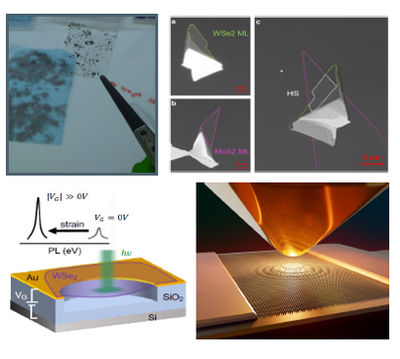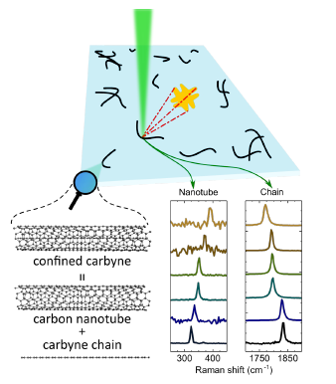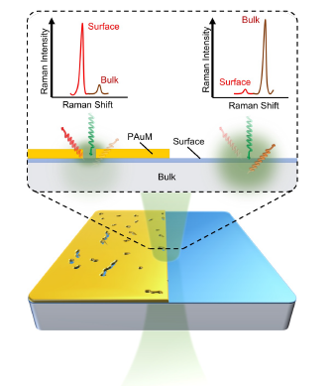|

|
Project 1 (Bachelor): Fabrication and characterization of devices for strain engineering of membranes / nanoimaging
In this project you will learn how to fabricate samples of 2D materials such as graphene or 2D semiconductors and how to combine them to create optoelectronic devices. You will work with a wide range of nanofabrication and characterization experimental techniques such as exfoliation, assembly of Van der Waals heterostructures, AFM and photoluminescence spectroscopy. You will be involved in cutting-edge strain engineering and near field spectroscopy measurements of 2D devices.
|
|

|
Project 2 (Bachelor): Characterization of one-dimensional confined carbyne
In this project, you will delve into the analysis of confined carbyne ‒ long linear 1D chains of sp-hybridized carbon enclosed within carbon nanotubes ‒ using Raman spectroscopy. The primary goal is to establish a comprehensive database of carbyne's vibrational modes while simultaneously developing an innovative algorithm for precisely triangulating the position of these nanostructures. Through hands-on experience with an advanced Raman setup, the student will acquire the proficiency to conduct Raman analyses on cutting-edge carbon nanomaterials. Additionally, this project offers the opportunity to master large dataset management and enhance code-writing skills, providing a well-rounded skill set for tackling complex research tasks.
|
|

|
Project 3 (Master): Surface-sensitive Raman spectroscopy
In this project, you will contribute to the further development of surface-sensitive Raman spectroscopy. This novel experimental method, developed in our lab, uses thin gold membranes with nanopores to probe the hidden surface properties of emerging materials for optoelectronics (ferroelectric films) and quantum information science (Silicon Carbide) by Raman spectroscopy. You will develop new approaches to simulate, fabricate, characterize, and transfer our membranes onto surfaces supplied from our local and international partners and reveal the surface properties by Raman spectroscopy. You will work with a wide range of nanofabrication as well as structural and optical characterization techniques, and gain profound theoretical and practical knowledge in Raman spectroscopy as a powerful technique.
|



